Education Courtesy of Solar Energy.
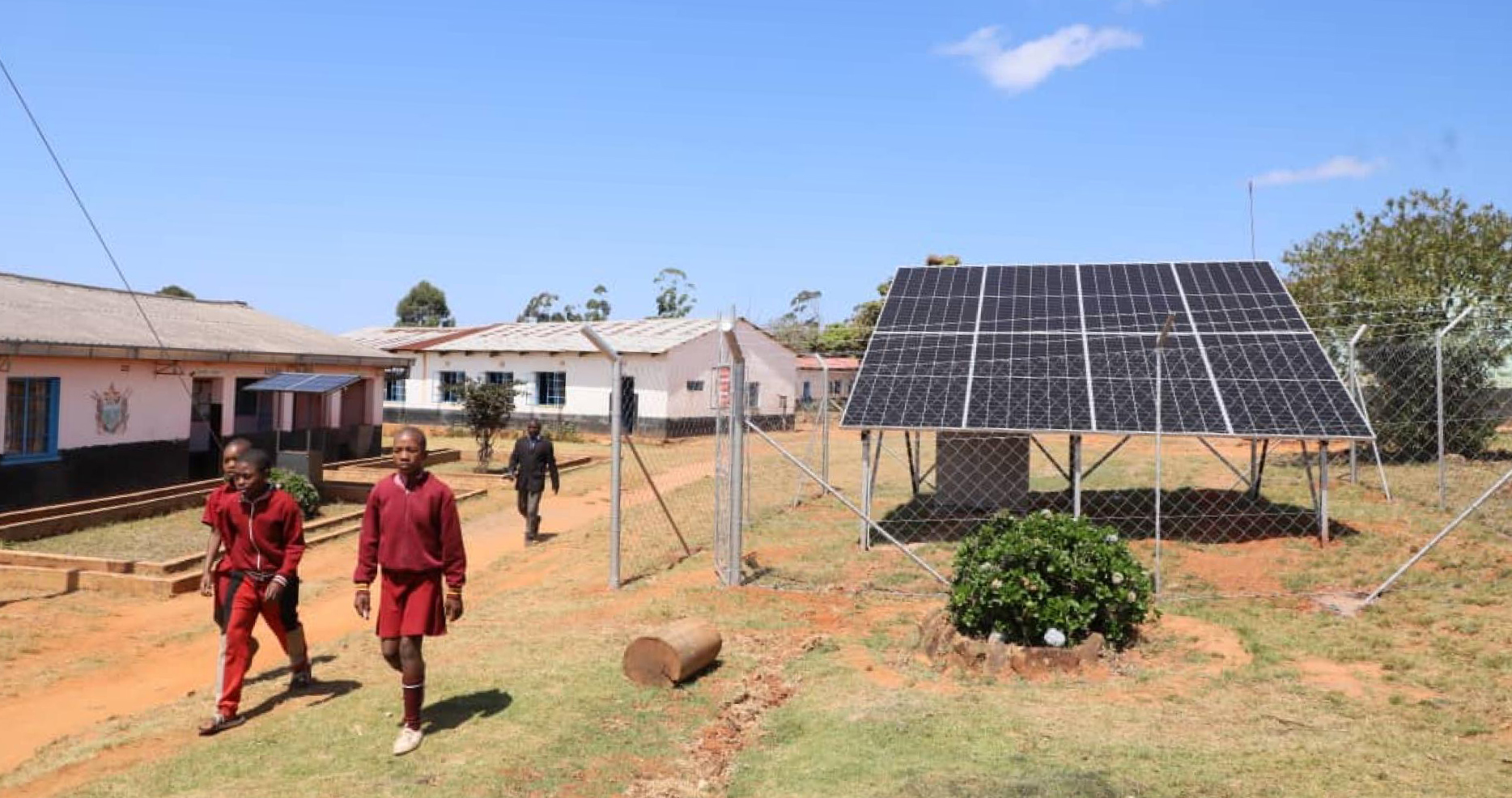
Imagine a well without a functioning pump and drinking water treatment system, or an entire village without a single lamp. This is everyday life for many people because they have no reliable access to electricity. A study by the German Institute for Economic Research estimates that more than 700 million people worldwide are living without electricity – which has far-reaching consequences for their quality of life. PV systems that provide sustainable and cost-effective electricity is one possible solution to this problem. SONNENALLEE presents a variety of projects that illustrate how technology and team spirit are capable of achieving great things.
Solar energy as a ray of hope
Many industrialized countries rely on electricity supply infrastructures that have been established and expanded over decades. Power plants, a broad and interconnected network of power lines, and trade with neighboring countries all contribute to security and flexibility of supply. But in regions that have not been part of such structures to date, such as some African countries, establishing an electricity supply is all the more difficult.
This can be remedied by decentralized solutions. These are energy systems that function locally in a self-contained manner and produce electricity as independently as possible from external factors. Probably the most popular and efficient example is solar energy. This is because it is not only reliably available worldwide, but can now be used quickly, easily and inexpensively thanks to state-of-the-art technology.
Installing the technology in the appropriate place and ensuring its long-term operation poses one particular challenge requiring not just materials, but trained personnel as well. The following projects show how this can be achieved and what impact having a reliable energy supply can have on improving education.
Clean water for schools
Whether going to the toilet, having a drink or cooking food, many basic human needs cannot be met hygienically without water. One place where this has particular consequences is schools. Instead of being able to learn in a calm and safe environment that will allow them to work toward a better future, many children around the world have to contend with classroom conditions that are hazardous to their health. They have to lug their own water bottles from their homes, often many miles away, or use filthy sanitary facilities that spread infectious diseases and make going to school a hazard. A reliable drinking water supply could provide a remedy – but this also requires electricity to operate well pumps and thus enable water from the tap. One group of volunteers is tackling this challenge with an impressive level of dedication.
The “Electricians without Borders” is an association that aims to promote development cooperation in the poorest regions of the world through sustainable power supply. Part of their concept is not only to provide one-off help in setting up appropriate structures, but also to train local people so that they can guarantee their supply independently in the long term. “We want our commitment to trigger social and economic developments,” explains Sylvain Volpp, founder and chairman of the association. In 2021, a mission in The Gambia demonstrated the fundamental contribution this work can make.
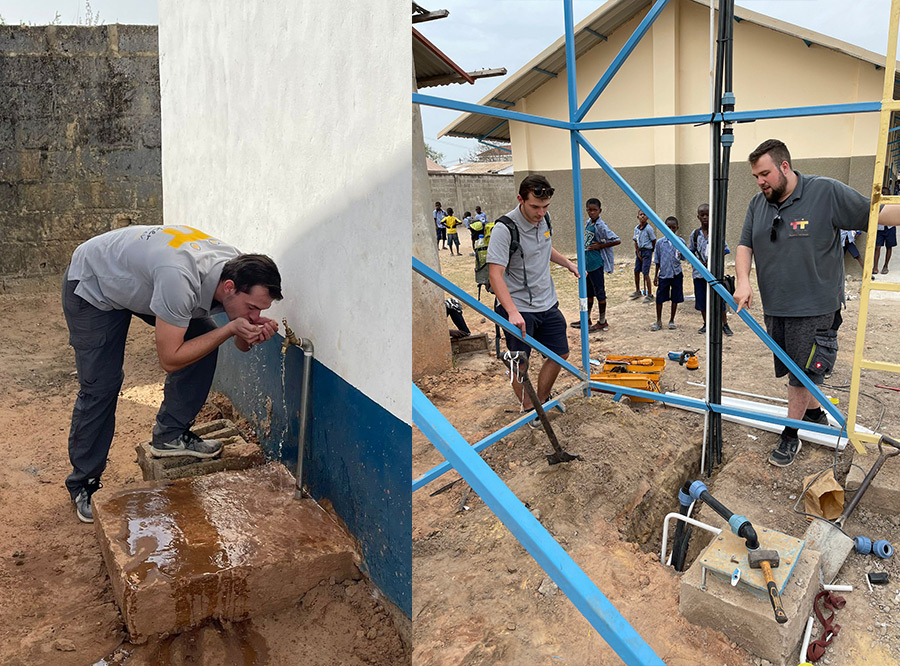
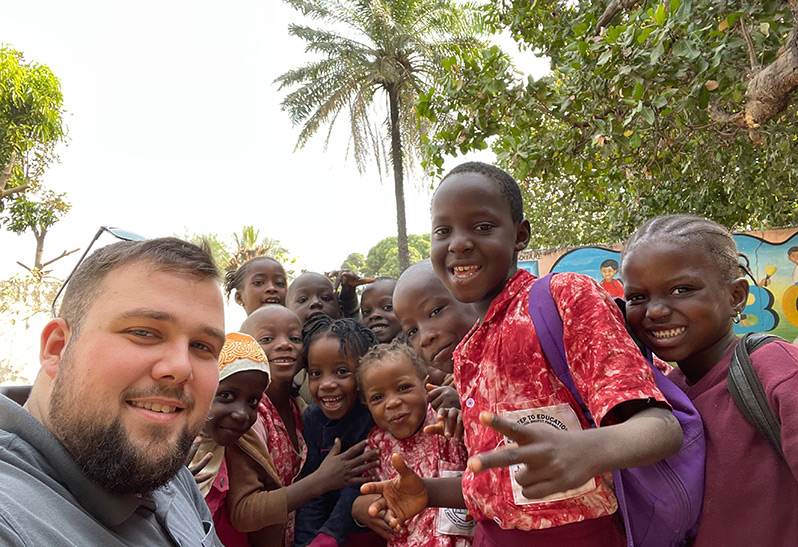
The objective was to provide four schools with a stable and clean water supply. Working with a local company, the association drilled wells up to 30 meters deep for the schools and fitted them with electric water pumps. Their electricity supply comes from a PV system, making the operation of the well particularly sustainable and securing the water supply for the classrooms, the sanitary facilities and the kitchens. “Electricity is not the end goal of our project. It is the means to an end,” emphasizes Volpp.
Light for a hospital
Imagine you need to go to a hospital in the evening, but because of the lack of electricity, it’s dark there and the staff can’t use the medical equipment to help you.
This is exactly what is happening at a medical center in Wellingara, The Gambia, where one of the schools receiving support is located as well. Without a reliable electricity supply, people were often left in the dark in the evenings and at night. This meant that good medical care could no longer be guaranteed for many hours – a fatal situation in an emergency, for example when a child is born at night.
The volunteer electricians installed a PV system with a battery-storage system, which now guarantees an uninterrupted and independent electricity supply in the sunny region. The hospital was subsequently even able to operate modern technical equipment, which would have been unthinkable without a secure electricity supply and was a great relief for the hospital staff and patients.
Volpp from Electrical Workers Without Borders adds that the association is organized on a voluntary basis, but consists of experienced professionals who are experts in electricity and energy systems, guaranteeing professionalism and safety at every step. “In another project in Vietnam, children experienced light at the push of a button for the first time with our help. Seeing the children’s eyes light up really does something to you,” says Volpp.
Sawing, soldering and sewing courtesy of solar energy
Education is more than just school lessons; it also involves vocational training. In less industrialized countries in particular, trade professions form a central part of economic output and are indispensable in everyday life as well. But here, too, the lack of electricity often becomes an obstacle – and solar energy once again presents itself as a simple and efficient solution.
The Kassel-based association TOGETHER – Hilfe für Uganda (Help for Uganda), where Dennis Halpape, project manager at SMA Solar Technology AG, works on a voluntary basis, has specialized in access to clean and safe electricity for this purpose (SONNENALLEE report). In two vocational schools in the regions of Kooki and Buryansungwe, TOGETHER was able to help improve the education provided.
The association installed a PV system including an electricity storage system, which helped the schools in a variety of ways. They now have a reliable supply of electricity for the first time and can guarantee the use of technical equipment during lesson times. And thanks to the storage solution, there is now always enough energy available in the evening and nighttime hours as well, giving the schools more flexibility when it comes to teaching. “For the local people, access to electricity means that the day does not have to end at sunset any more,” explains Halpape.
But it is not just traditional school lessons that are being supported in this way. The facility in Kooki, which is run by the aid organization A Chance for Children, also has a sewing shop, a metal workshop and a school workshop. The facility provides young people with two years of vocational training in vocations such as electronics engineering or plumbing, which then helps them to earn their own living – another aspect of sustainability.
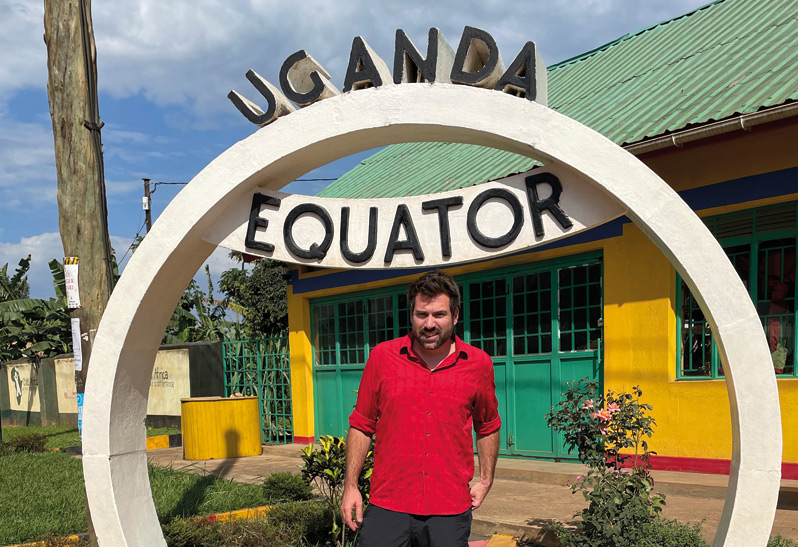
“We hope that we have been able to help the vocational school with our efforts and that we have made everyday life a bit easier for them. The fact that we were able to use our technology to help out in such vital areas is just such a great feeling,” explains Halpape.

Solar mamas – superwomen
The role women play in economic progress in newly industrialized countries has been the subject of numerous studies and has come into sharper focus, especially in the last decade. Studies by the OECD (Organization for Economic Co-operation and Development) and management consultancies such as McKinsey found that women worldwide carry out roughly 90% of the housework and child-rearing duties as unpaid labor. If these women were paid, their work output in non-industrialized countries would often amount to greater economic powers than the actual economies of the countries they live in.
One important resource is often overlooked in the shift to renewable energy, and that is the skilled professionals who install the PV systems and ensure their ongoing operation. But how does this succeed in regions with limited access to education? And who could take on these tasks?
Barefoot College’s “solar mamas” project taps into the potential of unemployed women recognized by the researchers and trains them as solar engineers, giving them the skills they need to install the technology these regions need to produce and store solar power. The initiative hopes that this will turn them into catalysts for change – and this is by no means an overstatement. The project is now active in 93 countries. More than 3,000 women have already been trained and have helped more than 125,000 households gain access to electricity.
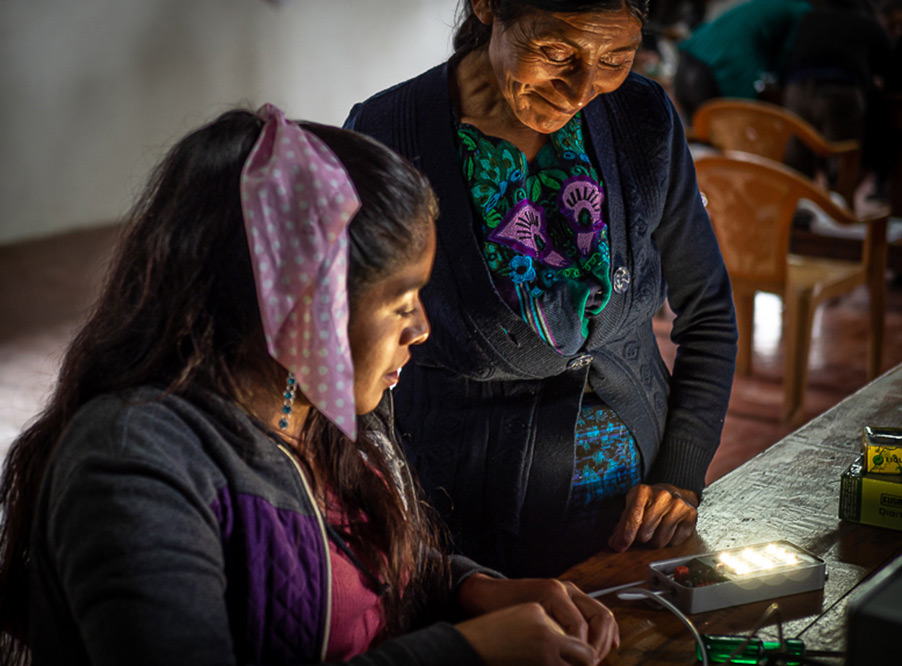 Barefoot College
Barefoot CollegeOvercoming hurdles and passing on knowledge
How do you train people to install energy technology when they can’t read or write and have no basic technical skills? Barefoot College is addressing this challenge with a concept called “demystifying the technology.”
It is essentially based on color codes and sign language, which are universally understandable. Plans for electrical circuits and the associated components, for example, are color-coded in such a way that all you have to do is plug them together. A deeper understanding of the technology is not necessary to begin with, but it is encouraged and arouses the curiosity of the women to delve deeper into the subject matter. A new group of Indian women started in September 2022 and will go on to supply over 700 households in their home regions.
The project deliberately focuses on quick practical relevance so as not to lose the participants because of content that is too theoretical and incomprehensible to many of them. This is also the best way of preparing the solar mamas for their second important task of training other women in their home regions. Why does the project focus on women? “Older women in particular are very rooted in their villages and want to give something back,” reports Barefoot College co-founder Sanjit Roy. Men, on the other hand, have often fled to the cities once they have obtained their certificates and built new lives for themselves.
The solar mamas, however, have the potential to become valuable catalysts in their home regions, training more people and enabling more and more individuals to have a secure electricity supply.
A good supply for the future
The projects presented have clearly shown what a tremendous impact a lack of electricity can have on education and thus on people’s entire futures. Without electricity, the chances of receiving schooling or vocational training decrease. But essentials such as lighting, medical care, sanitation and nutrition are also largely dependent on a reliable electricity supply.
Solar energy can be the solution to this complex problem. While it cannot eliminate every political or social factor, solar energy with selective help is a quick and easy way of raising living standards worldwide.
We would like to thank Electrical Workers Without Borders for the insights into their work. For more information on the volunteers, their projects and support opportunities, please visit www.elektriker-ohne-grenzen.de/en.

